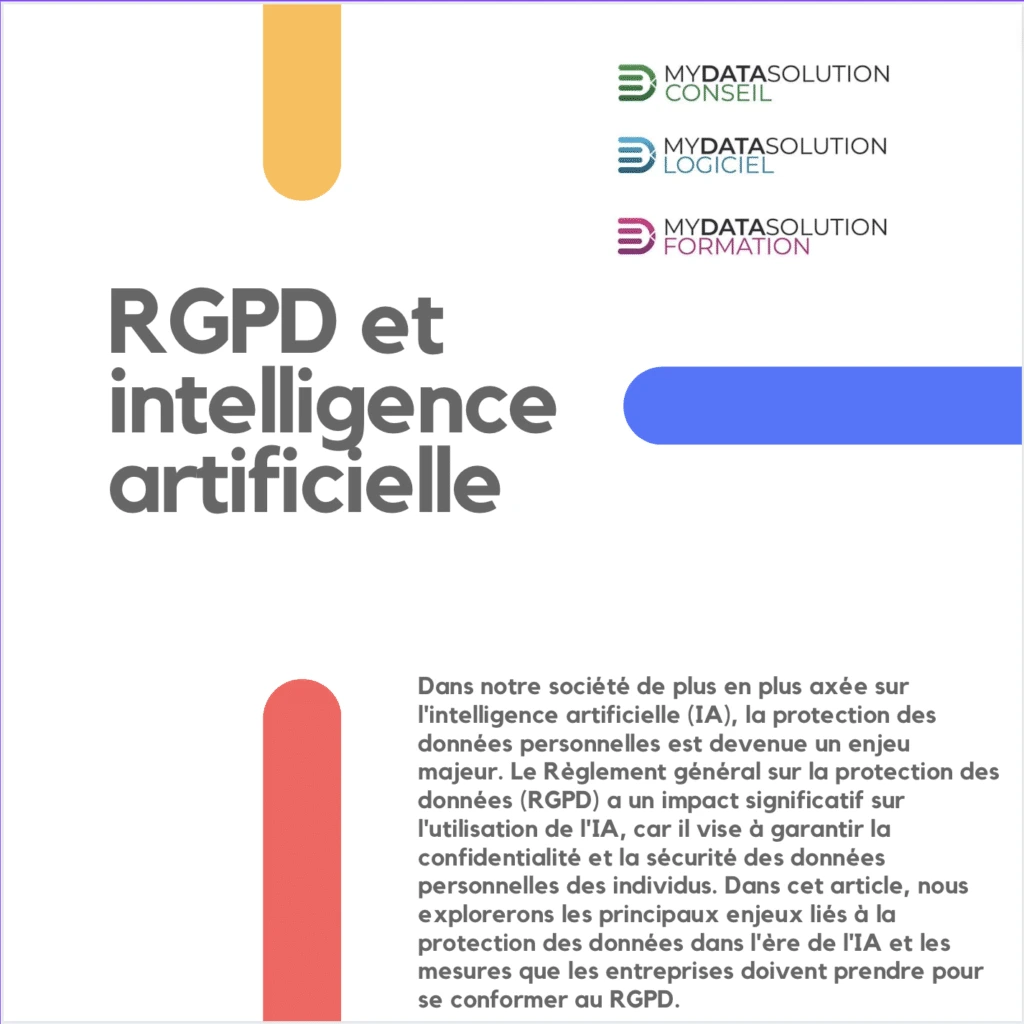Artificial intelligence (AI) is transforming numerous sectors, but it also raises significant challenges in terms of data protection. The General Data Protection Regulation (GDPR) plays a key role in regulating the use of AI while ensuring the confidentiality and security of personal data.
Defining the Purpose and Legal Basis for Data Collection in AI
Before launching an AI project, it is essential to define a legitimate purpose and a legal basis for data collection and processing. This includes:
- Clear Purpose: The purpose must be specific, legitimate, and aligned with legal frameworks. It must remain unchanged throughout the project.
- Legal Basis: Data processing must rely on a legal justification, such as:
- Consent from individuals.
- Performance of a contract.
- Compliance with a legal obligation.
- Pursuit of a legitimate interest.
This approach ensures compliance with the GDPR and strengthens user trust.
The Two Phases of AI Development
AI projects typically unfold in two phases:
- Training Phase: Designing, developing, and training AI models.
- Production Phase: Deploying and using AI in a real-world environment.
Each phase must adhere to the initial purpose and legal bases defined, while ensuring data transparency and security.
Individuals’ Rights in the Face of AI Systems
The GDPR grants individuals several rights to protect their personal data:
- Right of Access: Knowing which data is being processed.
- Right to Rectification: Correcting inaccurate data.
- Right to Erasure: Requesting the deletion of data.
- Right to Restriction: Limiting the use of data.
- Right to Data Portability: Receiving and transferring one’s data.
- Right to Object: Opposing data processing.
To ensure these rights, AI systems must integrate appropriate mechanisms from the design stage.
Key Challenges of AI and the GDPR
Informed and Specific Consent
Companies must obtain clear and explicit consent before collecting and using personal data in AI systems. Individuals must be informed of the purpose of processing and the algorithms used.
Algorithm Transparency
The GDPR requires individuals to understand how algorithms make decisions. Companies must explain the criteria used and allow users to challenge automated decisions.
Data Security
AI systems require robust security measures to protect data against breaches. This includes data encryption, strong authentication, and access monitoring.
Data Minimization and Retention
Companies must collect only the necessary data and define appropriate retention periods. Unnecessary data must be deleted or anonymized.
Key GDPR Principles for AI
- Lawfulness, Fairness, and Transparency: Data processing must be lawful, fair, and transparent.
- Purpose Limitation: Data should only be used for the defined purposes.
- Data Minimization: Collect only the necessary data.
- Accuracy: Maintain accurate and up-to-date data.
- Storage Limitation: Retain data only for as long as necessary.
- Integrity and Confidentiality: Protect data against unauthorized access.
The Impact of AI on Businesses
AI offers numerous opportunities but requires responsible data management. Here’s how it is transforming businesses:
- Operational Efficiency: Automating repetitive tasks.
- Informed Decisions: Rapid analysis of large amounts of data.
- Customer Personalization: Tailored experiences based on user preferences.
- Innovation: Development of innovative products and services.
- Enhanced Security: Threat detection and fraud prevention.
However, businesses must address the ethical and legal challenges related to AI, particularly in terms of data protection.
Conclusion
AI and the GDPR are not incompatible, but their coexistence requires a proactive approach. By defining clear objectives, respecting individuals’ rights, and integrating security mechanisms from the design stage, businesses can harness the potential of AI while ensuring GDPR compliance. This not only strengthens user trust but also enhances the reputation and sustainability of organizations.





